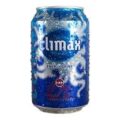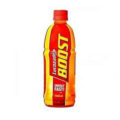Eating well is one of the best things you can do during pregnancy. Good nutrition helps you handle the extra demands on your body as your pregnancy progresses. The goal is to balance getting enough nutrients to support the growth of your fetus and maintaining a healthy weight. Malt drink is a non-alcoholic beverage obtained from unfermented wort. It is a very common drink in the Caribbean Islands and Latin America, but its consumption in Nigeria has been on the increase. Historically, malt drink was used as food for children and the sick, but has since become a mainstream beverage consumed by people of all ages. The love for malt drinks among non-alcoholic drinkers is growing daily.
In Nigeria, malt drinks account for a segment of the total carbonate volumes consumed in the country. According to Canadean, an online research portal, Nigeria is the third largest malt market, ranking behind Venezuela and Colombia. In Venezuela, malt is a popular children’s beverage, regularly found in school lunch boxes as a healthy energy source. While in Nigeria, malt drinks are used as substitutes for alcohol, regularly found amongst the drinks provided at social gatherings.
There are several Malt brands in the Nigeria they include Maltina, Amstel Malta, Malta Guinness, Dubic Malt, Grand Malt and Betamalt. Malt drink is a lightly carbonated beverage, brewed from barley, hops, and water, much like beer. However, corn and caramel coloring may also be added. Historically, it was used as food for children and ailing patients and is often referred to as “children’s beer”. It has since become a major beverage drink consumed by more people watching their nutritional content.
Is It Safe To Drink Malt During Pregnancy?
When you are eating and drinking for two, you should be very mindful of what you are putting into your body. There are certain beverages you’ll be asked to completely avoid when you are pregnant as it can affect the development of your baby. Non alcoholic malt drinks are fortified with vitamins and mineral. Malt is a source of sugar and nutrients that are obtained from the ingredients added in making non-alcoholic malt beverages. Also, most companies incorporate extra nutrients into their non-alcoholic malt beverages, which makes their market value higher.
According to a study published in the African Journal of Food Science, the Malt drinks (Maltina, Malta Guinness, Amstel Malt, Hi-Malt and Grand Malt) produced in Nigeria are acidic, but richly fortified with nutrients (sugar, minerals, vitamin A and vitamin C). Non-alcoholic malt beverages can boost breastmilk supply by stimulating prolactin levels. It also has some other surprising and quite remarkable health benefits.
Barley malt also contains lactogenic beta-glucan. This not only makes it highly nutritious, but when enjoyed 90 minutes prior to breastfeeding, can see an increase in the mom’s milk production. This makes sense, considering that barley is a starchy food that contains complex carbohydrates. The soluble fiber (essentially slowing glucose absorption) contained in the barley can lower cholesterol and even reduce the risk of heart disease. Malt drinks are well known to be both wholesome and highly nutritious, while providing some protein, sugar, essential minerals and levels of vitamins A and B, it also provides the all-important folic acid that is beneficial during both pregnancy and breastfeeding.
However, malt drinks contain high levels of added sugar. When you’re pregnant, anything you eat is also consumed by your developing baby. There is some concern that eating a lot of sugar during pregnancy can have an effect on a child’s cognition later in life. One study published in the American Journal of Preventive Medicine, found an association between mothers drinking certain sweetened beverages like Malt during pregnancy and reduced cognitive skills in children. While this study doesn’t prove having a sugary treat here and there will severely and negatively impact your child’s health, it suggests that it’s important to think consciously about what you eat when you’re pregnant.
Consuming a lot of sugary or sweetened foods during pregnancy may also have an effect on your physical health. About 7 in every 100 pregnant women in the U.S. develop a condition known as gestational diabetes, as the National Institutes of Health notes. Gestational diabetes develops during pregnancy and often goes away after delivery. However, it can increase your risk of developing type 2 diabetes later on, as well as increase your child’s risk. If you are diagnosed with gestational diabetes, reducing the number of sweet foods you eat, including fruits, and limiting starchy foods can help you keep your blood sugar levels under control, as UCSF Health points out.
Conclusion
When it comes to drinking malt during pregnancy or breastfeeding, moderation is the key word. Some advocates make the argument that when consumed in small and limited quantities, these ingredients are not potent enough to cause any harm to you or your baby. ALSO READ: Lucozade: Benefits, Pregnancy, Diabetes, Side Effects






